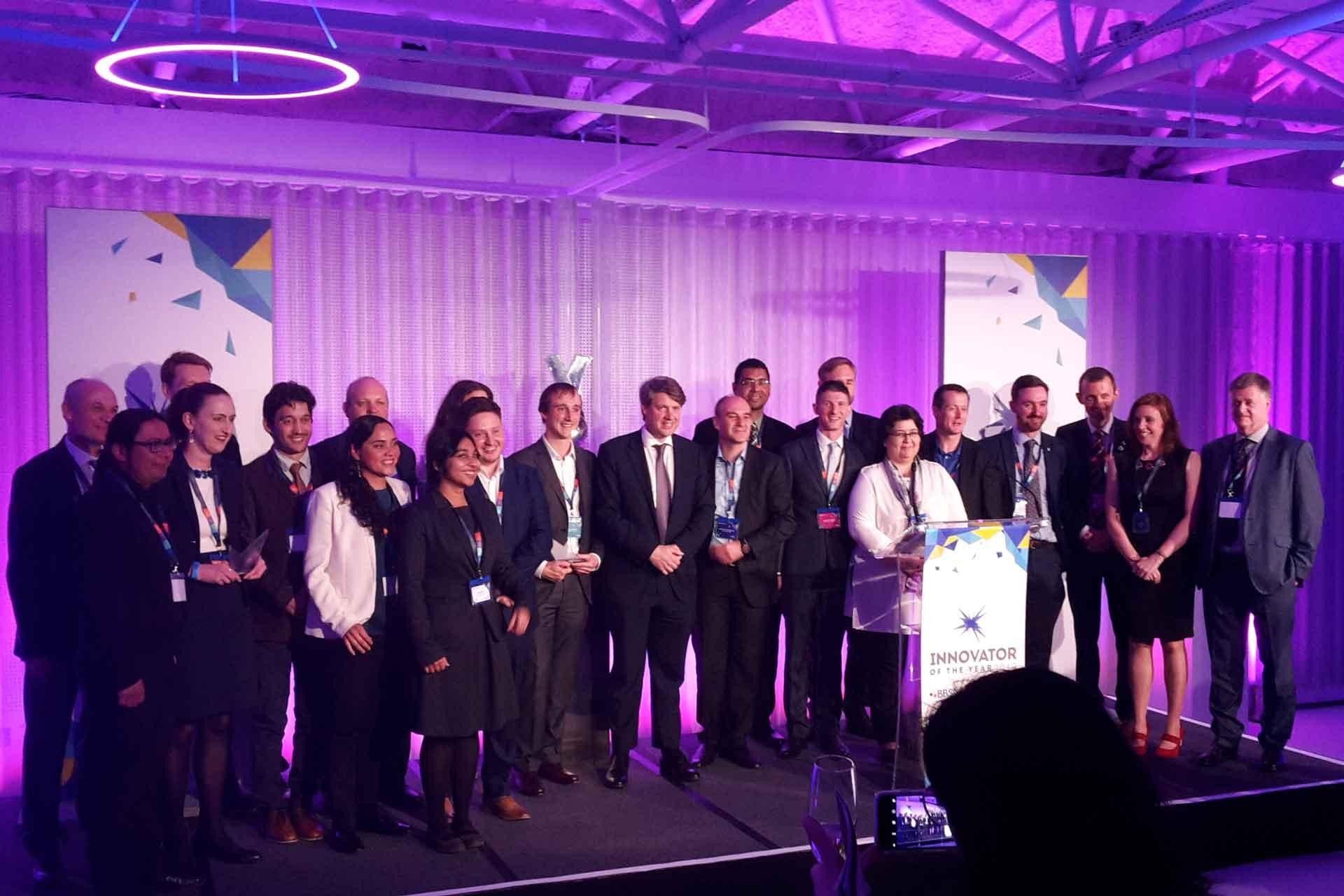Two scientists from The Pirbright Institute attended the BBSRC Innovator of the Year Awards on 15 May 2019 as shortlisted finalists. Dr Andrew Broadbent and Dr Amin Asfor pitched their research against ten other scientists and groups across four categories: Commercial Impact, Social Impact, International Impact and Early Career Impact. The awards aim to recognise and reward individuals and small teams who have harnessed the potential of their excellent research and are translating it into technologies that will have real-world impact through commercialisation.
Dr Andrew Broadbent was shortlisted in the Social Impact category for developing a method that allows the infection of chicken immune cells in the lab, replacing the use of infected birds and reducing the total number of birds needed for the study of poultry diseases. The immune cells can also be provided to laboratories without animal facilities, to enable them to conduct this kind of research, and vaccine companies will be able to screen vaccine candidates for effectiveness against locally circulating strains of viruses using these cells.
Dr Broadbent said: “I was very honoured to be among this group of inspirational individuals. It was great to see so much cool science and innovation in one room. The event was a fantastic reminder of how vibrant and energised the UK scientific community is”.
Dr Amin Asfor was shortlisted in the International Impact category for the development of a universal test to ensure production of effective foot-and-mouth disease (FMD) vaccines. The current tests available for determining FMD vaccine effectiveness are costly, laborious, time consuming and require the use of animals. However, the new test developed by Dr Amin Asfor and Dr Toby Tuthill is simple and can be used during production and prior to vaccine use for all circulating types of FMD. The test will allow supply chain partners to test vaccine batches in relevant countries prior to their use, as a new quality control mechanism to ensure FMD vaccines provide the best protection possible.
Dr Asfor said: “I am extremely proud to have been considered for the International Impact award. This work will contribute to controlling a livestock disease that causes an annual loss of US$ 5 billion worldwide”.
Both of Pirbright’s shortlisted innovators demonstrate the commitment of scientists at the Institute to improving the wellbeing of animals through their infectious disease research. Their innovations highlight the dedication of Pirbright researchers to the 3Rs (Replacement, Reduction and Refinement of the use of animals in research), as well as ensuring their work has international impact through their global collaborations.
